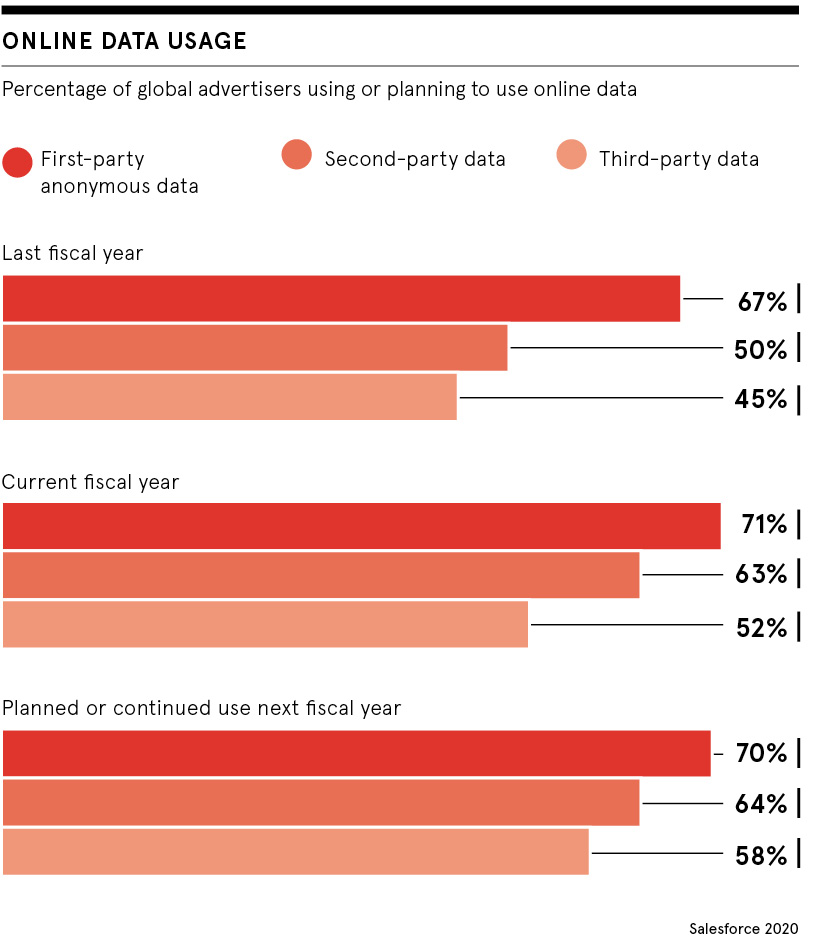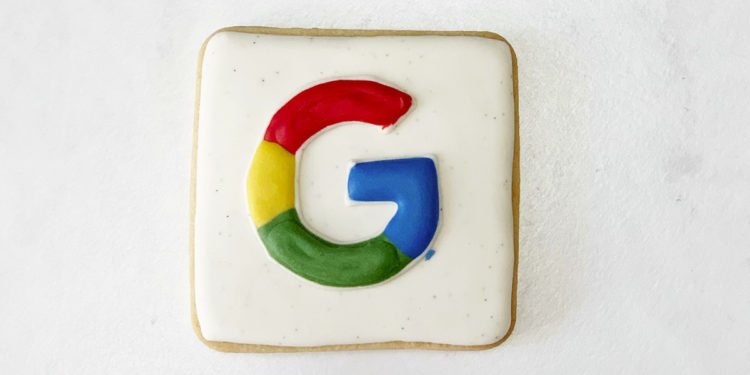[ad_1]
It was a throwaway remark that led Ronan Shields to interrupt a very powerful information story of his profession. The programmatic editor of US commerce publication Adweek was talking casually to somebody on the IAB Tech Lab, a non-profit trade analysis group within the digital promoting sector.
“They mentioned they’d considerations Google would do the identical with Chrome as Apple did with its ITP [intelligent tracking prevention] rollout,” he recollects, referring to the 2017 know-how that prevented firms from monitoring internet customers’ searching behaviour on different firms’ websites in Safari.
“I made a decision to pursue it. I referred to as up a great deal of individuals about it, extra so than for another article I’ve ever written. It was after I realised that Google’s PR groups have been beginning to get slightly bit extra nervous than standard about what I used to be writing that I believed, ‘I’m on to one thing right here’.”
After publishing in March 2019, Shields discovered himself fielding calls from Wall Avenue analysts and hedge fund managers, determined to know how one choice from Google would possibly upset the whole lot of the digital promoting ecosystem. At one level, an investor accused him of fabricating the story for the good thing about a short-seller “To be sincere with you, I wouldn’t even know the way to quick inventory,” he says.
It might choke off the financial oxygen from promoting that startups and rising firms must survive
However Shields’ story was, actually, watertight. This January, Google formally confirmed it might be blocking third-party cookies from its Chrome browser by 2022. The week that adopted noticed inventory in retargeting agency Criteo drop to a 52-week low and two trade our bodies publicly condemn the tech large’s transfer.
“Google’s choice to dam third-party cookies in Chrome… could choke off the financial oxygen from promoting that startups and rising firms must survive,” wrote the Affiliation of Nationwide Advertisers and the American Affiliation of Promoting Companies in a joint letter.
Months later, advertising after the “cookiepocalypse” continues to be a subject of dialog at each trade occasion. Why such a drama over one piece of code?
From context to cookies
The digital promoting world as we all know it grew from the third-party cookie, a chunk of data that’s despatched from an internet site and saved in a consumer’s browser. First-party cookies are “dropped” by webpage homeowners when a consumer visits their very own website to avoid wasting particulars comparable to passwords. The third-party variety are used primarily for retargeted promoting.
Cookies are dropped into browsers by webpages and a log of customers’ anonymised searching behaviour is constructed up and despatched again to publishers’ promoting companions. This implies advertisers are capable of show their adverts to probably the most related viewers. It’s additionally the explanation the rucksack you debated shopping for on Asos final week retains popping up in the midst of that article you’re studying.
Earlier than third-party cookies, manufacturers would select the place to purchase advert house by means of the lens of context. For instance, a sportswear retailer would merely select to show its adverts on websites that have been learn by individuals who have been doubtless to purchase sportswear, comparable to ESPN or Runner’s World.
“By the late-2000s, advertisers had largely pivoted to specializing in viewers, quite than context,” says Cadi Jones, business director, Europe, Center East and Africa, at adtech agency Beeswax. “Folks had been speaking in regards to the promise of one-to-one promoting for therefore lengthy and abruptly programmatic buying and selling made that dream appear a lot extra actual.
“Now, within the UK, automated buying and selling primarily based on cookie-based viewers indicators accounts for nearly 90 per cent of digital media,” she says.
Making dough from cookie crumbs
That determine, plus the very fact Chrome has a 66 per cent share of the browser market, is the explanation Google’s choice has prompted a lot commotion inside the advert trade.
A few of the panic is warranted, notably within the startup sector. Traders aren’t followers of uncertainty and, with the crumbling of third-party cookies coinciding with new privateness laws in Europe and California, the adtech sector is not the positive guess it as soon as was.
“Enterprise capitalists, who as soon as thought they may assist create the following Google in the event that they invested in the appropriate firm, simply aren’t getting the return they need as rapidly as they need,” says Shields. “They’ve misplaced curiosity.”
However for the better-funded gamers, in addition to these nimble sufficient to pivot within the subsequent two years, Google’s choice won’t imply the utter “loss of life of digital promoting”, a phrase that’s been bandied about considerably dramatically within the trade.

For starters, the previous 5 years have seen the digital media panorama diversify to the purpose the place cookie-informed, in-browser promoting isn’t as very important to advertisers because it as soon as was. Cookies, for instance, don’t exist with cell apps or linked TV.
Secondly, many noticed Google’s choice coming. Apple’s ITP implementation set a precedent adopted by Mozilla’s Firefox, which began blocking third-party cookies by default in June 2019. In the meantime, the stress on Google to guard customers’ privateness has step by step mounted.
“It will have been unrealistic to not imagine that, in some unspecified time in the future, this could happen,” says Krystal Olivieri, senior vice chairman of worldwide information technique and partnerships at WPP’s media arm GroupM. “We’ve seen totally different trade teams, know-how distributors and adtech distributors attempt to discover options that might clear up this prematurely.
“A lot of the shoppers I’ve spoken to have been fairly pragmatic about it. They’re simply keen to begin enthusiastic about how they may future-proof their promoting funding to verify the selections we make proper now can set them up for a world post-cookie.”
A brand new daybreak of digital promoting
It’s too quickly to inform what that world seems to be like. Some imagine high quality publishers will claw again energy from the digital duopoly of Google and Fb, providing premium stock bolstered by wealthy subscription information to manufacturers that resolve to maneuver again to contextual promoting.
Others predict this would be the nail within the coffin for purely ad-funded publishers, who will not be capable to draw advertisers a transparent image of their readership.
Some predict a price range shift away from banner and video adverts into much less focused types, comparable to content material advertising.
In the meantime, others watch manufacturers scrambling for their very own buyer information and imagine we’re shifting right into a world the place firms focus much less on focusing on and extra on deepening their relationship with present customers. As Olivieri places it: “On this planet we’re shifting into with out cookies, it will likely be a problem for those who don’t have first-party information.”
A small minority predict a cull in digital promoting budgets altogether. However that’s a view not shared by Jones. “Individuals are not going to cease spending cash on the web, as a result of adverts on the web are confirmed to work,” she says. “They’re now enthusiastic about the alternatives, about what it means and the way they will make companies which might be going to achieve success within the new panorama.”
Olivieri agrees: “I feel lots of people realise we most likely stretched the cookie additional than it ought to have gone. They’re optimistic about having the ability to pivot and give attention to potential ways that will truly ship better worth than the cookie.”
[ad_2]









